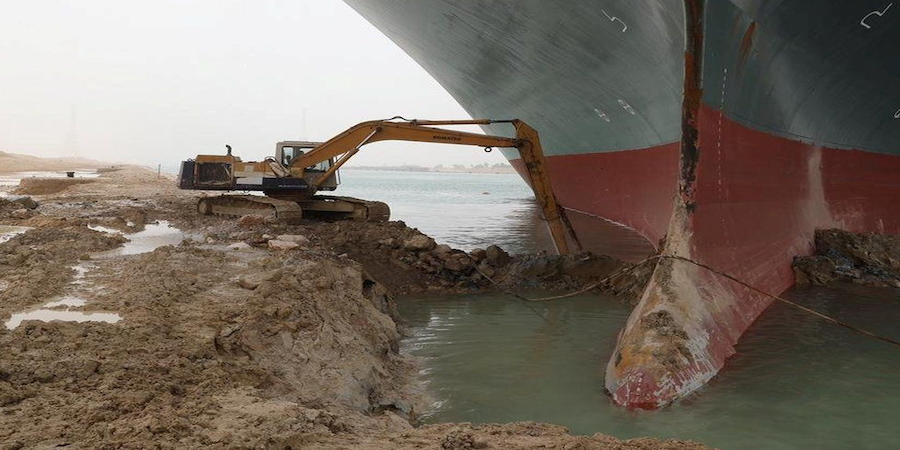Like so many other trends, the pandemic has accelerated a pre-existing movement towards re-shoring or near-shoring the sourcing of B2B products and services.
This incident has further highlighted the financial risk of fragile supply chains; it is estimated in the 3 days following the incident around $7bn of good are getting trapped in the traffic jam each day. At the time of writing, it remains unknown how long the issue will take to resolve. It is now suggested that the ship may be unloaded in situ, though exactly how that might happen is unclear. With 10% of global trade shipments passing through the canal and an additional journey time of 12-15 days added by navigating around the Cape of Good Hope, companies can expect delays and cost increases. The oil price was up 4% within 24 hours of the incident.
For larger companies, supply chain issues are already a significant headache. In March, Nike reported lower than expected Q3 results. Nike CEO John Danahoe cites global container shortage as well as port delays as the main driver of this. Nike’s share price is down 10% since that call, a drop in valuation of $20bn. Samsung warned investors on the same day as the grounding that computer chip shortage would significantly hurt the business going forward.
Recent in many procurement teams’ minds will be the disruption of the pandemic, in addition to the political wind blowing away from globalism, not least in the example of Brexit. Add to this the increasingly widespread acknowledgement of the climate emergency and transport’s role in carbon emissions and it adds up to a significant pressure on businesses to ensure that their supply chains are resilient, cost effective and environmentally and socially responsible.
Into this space, start-ups are starting to open up new business models. Crunchbase lists 282 Supply Chain Management start-ups with a combined recent investment of $6.3bn. Investors include prestigious programmes such as Y Combinator, Techstars and Andreessen Horowitz. Savvy B2B buyers can already make significant cost savings and increase supplier diversity and resilience without incurring the high costs of traditional enterprise systems such as Coupa and SAP Ariba.
How we can help
You can learn more about how Applegate uses 25 years of experience connecting buyers and suppliers, augmented with cutting edge data science and AI to deliver supply chain resilience, supplier diversity and cost benchmarking. If you’d like a free demo of the system, you can schedule a time to speak with us. You can also see more about SupplyDevon, our free-to-use platform for companies in Devon to buy local.

